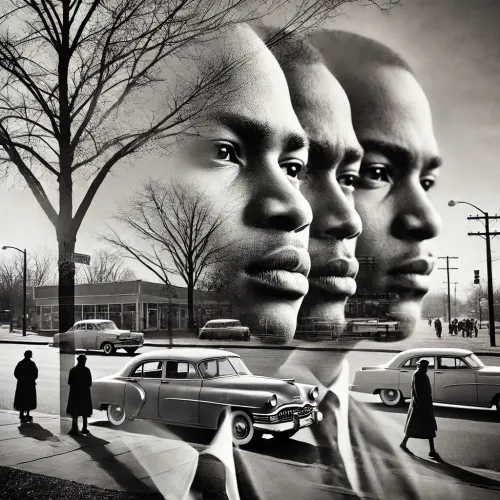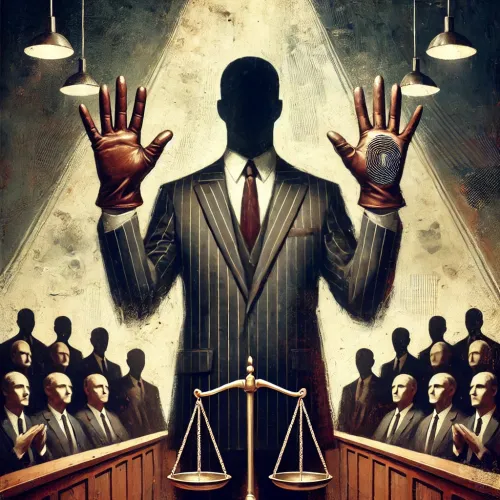The role and autonomy of juries differ widely across legal systems, reflecting each nation’s distinct approach to justice. While some countries empower jurors to act as independent arbiters of fairness, others restrict their discretion, emphasizing conformity to legal statutes over moral judgment. Jury nullification, the practice of acquitting a defendant despite evidence of guilt due to the perceived injustice of the law, remains a contentious yet vital component of democratic justice. A comparative analysis of international jury systems highlights the importance of empowering jurors to exercise independent judgment and underscores the global need to embrace nullification as a safeguard against systemic injustice.
In the United States, jury nullification occupies a complex space within the legal system. Although jurors possess the right to nullify, systemic efforts to suppress its discussion often render it a dormant power. Judges typically instruct jurors to follow the law as written, discouraging consideration of its fairness. Activists seeking to educate the public about nullification frequently face legal retaliation, further limiting its application. Despite these barriers, nullification has played a pivotal role in American history, from resisting the Fugitive Slave Act to challenging Prohibition. Its potential to check prosecutorial overreach and unjust laws remains an essential, if underutilized, aspect of the U.S. jury system.
In contrast, England and Wales offer a more explicit recognition of jury independence. A notable example is the case of R v. Ponting (1985), where Clive Ponting, a civil servant, leaked classified information exposing government misconduct during the Falklands War. Despite clear evidence of guilt under the Official Secrets Act, the jury acquitted Ponting, recognizing his actions as morally justified. This case exemplifies the jury’s power to act as a conscience of the community, prioritizing justice over strict legal compliance. England’s legal culture, while not openly promoting nullification, provides greater space for juror discretion compared to the United States.
Other legal systems, however, significantly curtail juror independence by employing mixed tribunals. In Germany, for instance, serious criminal cases are tried before a panel of professional judges and lay assessors. While lay assessors participate in deliberations and verdicts, their influence is diluted by the presence of judges, who dominate the proceedings. Similarly, Japan’s saiban-in system involves a hybrid panel of judges and citizen jurors, with professional judges often shaping the final verdict. These mixed systems prioritize legal uniformity and efficiency, limiting the potential for independent juror judgments or nullification.
Critics of jury nullification argue that it undermines the rule of law by introducing inconsistency into verdicts and allowing personal biases to influence legal outcomes. However, such criticisms overlook nullification’s role as a democratic safeguard. Laws are human constructs, subject to error and bias. Empowering jurors to challenge unjust laws ensures that legal systems remain accountable to evolving societal values and moral principles. International examples, such as the Ponting case, demonstrate that nullification can serve as a powerful check on governmental overreach and prosecutorial excess.
Moreover, nullification addresses the limitations of rigid legal frameworks. In the United States, mandatory minimum sentencing laws and harsh drug policies disproportionately harm marginalized communities. Jurors informed of their right to nullify could mitigate these injustices, countering the systemic inequities perpetuated by inflexible statutes. Similarly, in nations with mixed tribunals, introducing greater juror autonomy could enhance fairness by incorporating diverse perspectives and moral considerations into legal decisions.
A global recognition of jury nullification’s value requires addressing the cultural and institutional barriers that suppress juror independence. Judicial instructions should explicitly acknowledge nullification as a legitimate aspect of the jury’s role, empowering jurors to consider the broader implications of their verdicts. Activists and educators should work to raise public awareness about jury rights, fostering a culture that values independent judgment and moral accountability. Additionally, legal systems reliant on mixed tribunals should consider reforms that enhance the influence of citizen jurors, ensuring their voices carry equal weight in deliberations.
Encouraging jury nullification also demands a reevaluation of prosecutorial practices. In many systems, prosecutors wield disproportionate power through charge stacking, plea bargaining, and selective enforcement of laws. These practices undermine the jury’s role by coercing defendants into plea deals or presenting cases in ways that discourage independent judgment. Rebalancing this dynamic requires limiting prosecutorial overreach and ensuring that more cases reach juries, allowing citizens to fulfill their role as arbiters of justice.
International perspectives on jury powers reveal the profound impact of juror autonomy on the pursuit of justice. Systems that prioritize legal conformity over moral judgment risk perpetuating systemic injustices and eroding public trust in the judiciary. Conversely, empowering jurors to exercise their conscience fosters accountability, promotes fairness, and ensures that laws reflect the values of the communities they serve.
Jury nullification is not a rogue practice; it is a vital component of democratic governance. By enabling jurors to challenge unjust laws, nullification reinforces the principle that the law exists to serve the people—not to subjugate them. A comparative analysis underscores the need for global recognition of this right, calling for reforms that prioritize juror independence and moral accountability. Only by embracing the full potential of jury nullification can legal systems achieve their ultimate goal: delivering justice.




